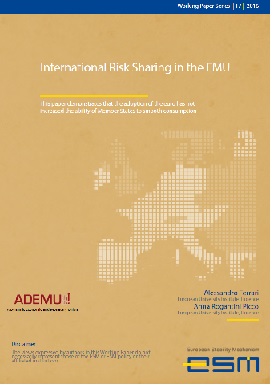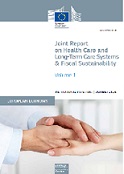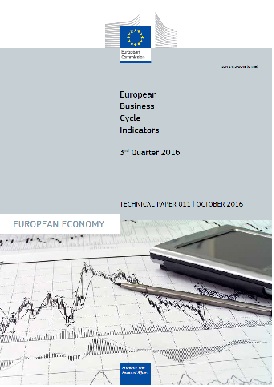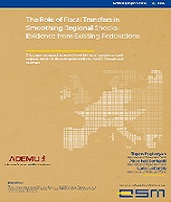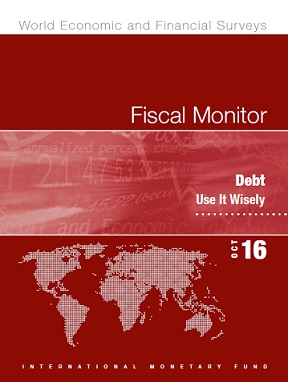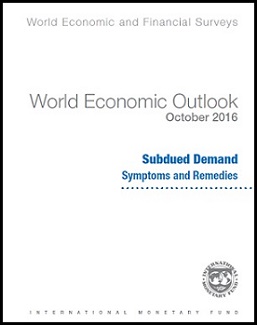Ferrari, Alessandro, Rogantini Picco, Anna, (2016),“International Risk Sharing in the EMU” , ESM Working Paper Series, July 2016 This paper aims at empirically assessing the effect of the adoption of the euro on the ability of euro area member states to smooth consumption and share risk. With the objective of evaluating the economic performance of euro area countries in the scenario where the euro had not been adopted, we construct a counterfactual dataset of macroeconomic variables …Read More
Joint Report on Health Care and Long-Term Care Systems & Fiscal Sustainability
European Commission, (2016), “Joint Report on Health Care and Long-Term Care Systems & Fiscal Sustainability”, European Commission Publications, 7 October This report, prepared by the staff of the European Commission’s Directorate-General for Economic and Financial Affairs and the Economic Policy Committee (Ageing Working Group), presents policy challenges for health care and long term care, and options on how to contain spending pressures through efficiency gains, in order to ensure fiscally sustainable …Read More
European Business Cycle Indicators – 3rd Quarter 2016
European Commission, (2016), “European Business Cycle Indicators – 3rd Quarter 2016”, European Commission Publications, 7 October Both the euro-area and EU Economic Sentiment Indicators (ESI) moved broadly sideways in the third quarter of 2016. Standing at 104.9 (euro area) and 105.6 (EU) points respectively, both indicators remain comfortably above their longterm average of 100. From a sectoral perspective, the euro area and the EU witnessed a flat evolution of consumer …Read More
The Role of Fiscal Transfers in Smoothing Regional Shocks: Evidence from Existing Federations
Poghosyan, Tigran, Senhadji, Abdelhak, Cottarelli, Carlo, (2016), ” The Role of Fiscal Transfers in Smoothing Regional Shocks: Evidence from Existing Federations“, ESM Working Paper Series, July 2016 We assess the extent to which fiscal transfers smooth regional shocks in three large federations: the US, Canada and Australia. We find that fiscal transfers offset 4-11 percent of idiosyncratic shocks (risk-sharing) and 13-24 percent of permanent shocks (redistribution). This fiscal insurance largely operates through automatic stabilizers embedded …Read More
Big Bad Actors: A Global View of Debt
Gaspar, Vitor, Moreno Badia, Marialuz, (2016), “Big Bad Actors: A Global View of Debt”, iMF Direct, 5 October In the midst of the Great Depression, the American economist Irving Fisher warned of the dangers of excessive debt and the deflationary pressures that follow on its tail. He saw debt and deflation as the big, bad actors. Now, their close relatives—too high debt and too low inflation—are still in play, at …Read More
Fiscal Monitor: Debt—Use It Wisely
International Monetary Fund, (2016), “Fiscal Monitor: Debt—Use It Wisely”, IMF, Οctober At 225 percent of world GDP, the global debt of the nonfinancial sector—comprising the general government, households, and nonfinancial firms—is currently at an all-time high. Two-thirds, amounting to about $100 trillion, consists of liabilities of the private sector which, as documented in an extensive literature, can carry great risks when they reach excessive levels. However, there is considerable heterogeneity, …Read More
GDP growth — is it “good enough” or does it distort policymaking?
Graham, Carol, (2016), “GDP growth — is it “good enough” or does it distort policymaking?”, Brookings, 5 Οctober Today, standard benchmarks of progress, productivity, job quality, and democracy are being upended. Income-based measures such as gross domestic product (GDP) served us well for decades, yet when GDP counts pollutant-generating economic activity on the positive side of the balance sheet, or when it fails to measure unpaid labor activity, it falls short. …Read More
Central banks are facing a crisis of confidence – it’s time to reinvent global monetary policy
Shen, Dennis, (2016), “Central banks are facing a crisis of confidence – it’s time to reinvent global monetary policy”, LSE Europpblog, 6 October Since the financial crisis, central banks have taken on a far more significant role in economic management. But with diminishing returns of and unintended consequences from existing policies, monetary policy now faces a crisis of confidence. Dennis Shen explores policy innovations that could support global central banks battling …Read More
World Economic Outlook: Subdued Demand: Symptoms and Remedies
International Monetary Fund, (2016), “World Economic Outlook: Subdued Demand: Symptoms and Remedies”, IMF, October Global growth is projected to slow to 3.1 percent in 2016 before recovering to 3.4 percent in 2017. The forecast, revised down by 0.1 percentage point for 2016 and 2017 relative to April, reflects a more subdued outlook for advanced economies following the June U.K. vote in favor of leaving the European Union (Brexit) and weaker-than-expected …Read More
The Great Stagnation
Labouré, Marion, Braunstein, Juergen, (2016), “The Great Stagnation”, LSE Euro Crisis in the Press, 4 October The recent Brexit vote, as well as high uncertainty around a number of upcoming elections (e.g., the 2016 US and 2017 French presidential elections), are only symptoms of a larger underlying problem. Voting for populist and extremist campaigns is a mean of expressing discontent with the status quo, but with far reaching implications. We believe there …Read More




